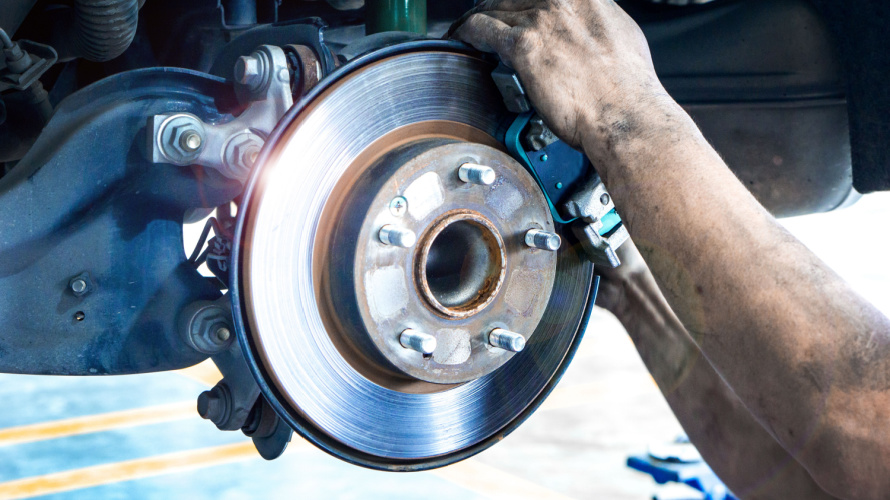Behind The Scenes: How Brake Pads Work And When To Replace Them
July 13, 2023
Tires

When it comes to driving, safety is paramount. Among the most crucial components ensuring a safe ride are your vehicle’s brakes. But have you ever wondered how these brakes work? Or more specifically, the role of brake pads and when they need replacement? Drive with us behind the scenes as we explore the mechanics of brake pads and give you expert advice on their maintenance.
How Brake Pads Work
Brake pads play a pivotal role in the braking system. Here’s a simple breakdown of the process:
1. Activation: When you press the brake pedal, it activates a cylinder filled with brake fluid.
2. Pressure Transmission: This fluid then transmits the pressure to the brake calipers.
3. Friction Creation: The brake calipers press the brake pads against the brake rotors, creating friction.
4. Vehicle Deceleration: This friction slows down the rotors and, consequently, the wheels of the vehicle, bringing it to a halt.
The efficiency of this process largely depends on the condition of the brake pads. If they are worn out, the braking efficiency can be severely compromised.
Why Brake Pads Wear Out
Just like your shoes wear out after walking many miles, brake pads undergo wear and tear too. They’re constantly subjected to immense heat and pressure, leading them to wear out over time. Various factors can influence their lifespan:
- Driving Habits: Aggressive driving and frequent short trips can reduce the life of your brake pads.
- Materials: Different types of brake pads, such as organic, metallic, or ceramic, have different lifespans.
- Environmental Factors: Driving in hilly areas or in stop-and-go traffic can accelerate brake pad wear.
Signs That You Need To Replace Brake Pads
To ensure your safety and maintain optimal braking performance, keep an eye out for these signs:
1. Squealing Noise: A high-pitched noise while braking often indicates the brake pads are nearing their end.
2. Deep Grinding Metal Sound: This suggests the brake pads have worn out completely, leading to metal on metal contact.
3. Warning Light: Some modern vehicles have a warning light indicating when it’s time for a brake pad replacement.
4. Decreased Performance: If you feel your vehicle is taking longer to stop than usual, it’s time to inspect the brake pads.
5. Vibration: Experiencing a pulsating brake pedal? This could be due to uneven wear on the brake pads.
Tirecraft’s Trusted Approach To Brake Pads
At Tirecraft, we understand the significance of maintaining a vehicle’s braking system. We recommend drivers get their brake pads checked regularly, especially if any of the signs mentioned above become evident. Our team of skilled professionals ensures that the brake pads we offer not only match but often exceed the manufacturer’s recommendations. Plus, we provide insights and guidance to our customers, promoting safer driving habits and prolonging the life of brake pads.
Understanding the mechanics behind brake pads isn’t just intriguing—it’s essential for every driver. It empowers you to make informed decisions about your vehicle’s maintenance, ensuring safety on the road. Always remember, brake pads are the linchpin in the braking process. Ensuring they are in top condition is not just beneficial—it’s vital. Trust in Tirecraft for expert advice, quality products, and unparalleled service.
Back

